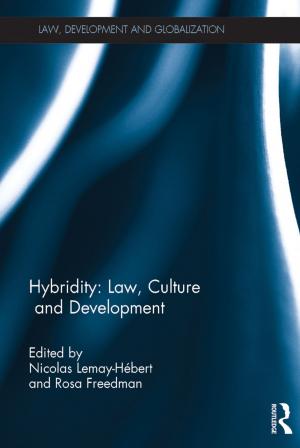Developments in Family Therapy (Psychology Revivals)
Theories and Applications Since 1948
Nonfiction, Health & Well Being, Psychology, Family Therapy, Mental Health| Author: | ISBN: | 9781317805403 | |
| Publisher: | Taylor and Francis | Publication: | January 9, 2014 |
| Imprint: | Routledge | Language: | English |
| Author: | |
| ISBN: | 9781317805403 |
| Publisher: | Taylor and Francis |
| Publication: | January 9, 2014 |
| Imprint: | Routledge |
| Language: | English |
Originally published in 1981, this volume presents papers by the leading British theorists and practitioners in family therapy from its beginnings up to the 1980s. It collected together for the first time a number of important previously published articles which had relevance and interest for family therapists of the day, and includes other chapters specially written for this book which reflected the most recent thinking on the topics covered at the time.
The book is divided into three parts. The first, which includes papers by John Bowlby, R.D. Laing and A.C.R. Skynner, deals with the theory behind family therapy. In the second part we see the application of family therapy to specific clinical situations such as adolescent psychiatry, illness, death and mourning in the family, and marital therapy. The third part of the book covers various differential approaches within family therapy, including psychoanalysis; the experiential approach and family construct psychology.
The papers in all three parts weld together ideas from the behavioural and the psychodynamic spheres of interest. Addressed as they are to theoretical issues and clinical applications, they linked together the past and future of family therapy at that time.
Originally published in 1981, this volume presents papers by the leading British theorists and practitioners in family therapy from its beginnings up to the 1980s. It collected together for the first time a number of important previously published articles which had relevance and interest for family therapists of the day, and includes other chapters specially written for this book which reflected the most recent thinking on the topics covered at the time.
The book is divided into three parts. The first, which includes papers by John Bowlby, R.D. Laing and A.C.R. Skynner, deals with the theory behind family therapy. In the second part we see the application of family therapy to specific clinical situations such as adolescent psychiatry, illness, death and mourning in the family, and marital therapy. The third part of the book covers various differential approaches within family therapy, including psychoanalysis; the experiential approach and family construct psychology.
The papers in all three parts weld together ideas from the behavioural and the psychodynamic spheres of interest. Addressed as they are to theoretical issues and clinical applications, they linked together the past and future of family therapy at that time.















